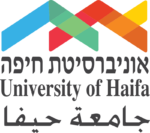 HAIFA, Israel (Press Release) — Alongside Holocaust denial and expressions of antisemitism, which have both been increasing around the world, the prestigious Weiss-Livnat International Program for Holocaust Studies at the University of Haifa is currently experiencing a global cyber-attack, in response to the registration campaign for the academic year 2024-25.
HAIFA, Israel (Press Release) — Alongside Holocaust denial and expressions of antisemitism, which have both been increasing around the world, the prestigious Weiss-Livnat International Program for Holocaust Studies at the University of Haifa is currently experiencing a global cyber-attack, in response to the registration campaign for the academic year 2024-25.
The responses include hateful statements, Holocaust denial, claims that the Holocaust is “Zionist propaganda” and even attempts to establish a narrative whereby “what is happening in Gaza is much worse than the annihilation of 6 million Jews in Europe in the middle of the previous century.” If this was not enough, the program’s graduates, who reside in many countries around the world and engage in Holocaust research, are experiencing antisemitism and are afraid to practice their field of research.
The program, which grants its graduates a Master’s degree, applies a multidisciplinary approach to Holocaust studies, and provides an opportunity for employment in institutions around the world, opened in 2012, and has hundreds of graduates from about 35 countries.
Leka Rezniki, a news presenter on the Kohavision channel in Kosovo, is a graduate of the Program and the great-grandson of Arselan Mustafa Rezniki, at the time a merchant who transported fruits and vegetables from Macedonia. In 1943, after the Germans invaded Albania, Rezniki used his truck to smuggle 400 Jews to safety in Duchan, and was recognized as the first Righteous Amongst the Nations from Kosovo in 2008. Leka Rezniki registered for the Program after he discovered his great-grandfather’s family secret: “Like the Pew survey conducted last December showing that one in five Americans believe that the Holocaust is a myth,” things are similar in Kosovo too, where “people compare what is happening in Gaza to the Holocaust. Education about this issue is at its lowest and the situation could deteriorate”.
Dr. David Silberlkang, a historian and lecturer in the Program and a senior researcher at Yad Vashem, himself a son of Holocaust survivors: “The war has indeed brought to the surface the hidden antisemitism. Immediately after the attack, some people celebrated on the campuses. We have seen responses labeling the events of 7 October “the Warsaw Ghetto uprising of the Palestinians in Gaza”, and sometimes they explicitly call the Israelis Nazis in light of what is happening in Gaza”.
A current student in the Program is Sebastian Delinger, 33, an Austrian who works at the Museum of Austrian History. Delinger’s personal and national story is intertwined with the memory of the Holocaust: four of his family members served in the Wehrmacht, and as a child he lived near Hartheim Castle, a place infamous as one of the extermination centers in the euthanasia program that murdered about sixty thousand people. His life story led him to study history at the Vienna Museum and the Program in Haifa: “We are seeing antisemitism and racism all the time, and this is why we must continue studying and educating about this subject, talking about the horrors that occurred during the Holocaust.”
Saha Sumaiditia, from Calcutta, India, was exposed to the subject of the Holocaust only when he watched the movie Schindler’s List at age 18, and his curiosity about European history was awakened. He registered for the Program and went on to study for his doctorate at Toronto University. The events of 7 October led to attacks on him, just because he had studied about the Holocaust in Israel. “People think I’m a Zionist and that I was brainwashed”, he says. “I’m afraid to express my opinions publicly, and I even avoid going to the campus. Some people there applaud Hamas”.
Yoav Yaron, a graduate of the Program and currently Managing Editor of The Journal of Holocaust Research at the Weiss-Livnat Center: “This is not an exceptional case. The events of 7 October have led many of the international Program’s graduates to avoid engaging with the subject for fear of attack. Some of them receive replies: ‘We’ve heard enough about your Holocaust, look at the “Holocaust” happening in Gaza”.
Lisa Schultz-Yatsiv from Germany, the Manager of Specializations and Partnerships in the Program, is the granddaughter of members of Hitler Youth. She joined the Program in Haifa to study how the German nation was willing to participate in crimes against humanity and against the Jewish people: “Graduates of the Program around the world are suffering from antisemitism. People say to them: How can you teach the Holocaust when your university is part of the crime?”.
Uriel Peizier, an American-Argentinian Jew, a graduate of the Program and a grandson of Holocaust survivors, who works at the Buenos Aires Holocaust Museum: “I see swastikas all over Buenos Aires. The atmosphere on the campuses here is very tense, with many Palestinian flags. We hear comments like: ‘You know what the Holocaust is, so why are you doing this?’ We must continue studying and teaching the Holocaust, otherwise history might repeat itself”.
*
Preceding provided by the University of Haifa’s Weiss-Livnat International Program for Holocaust Studies